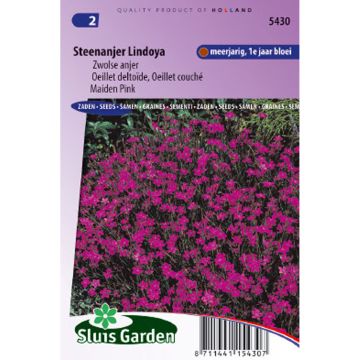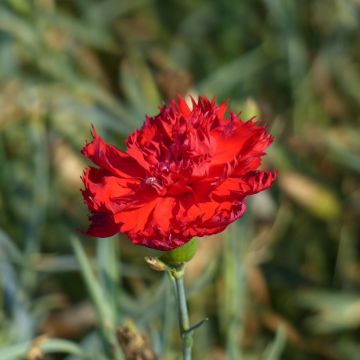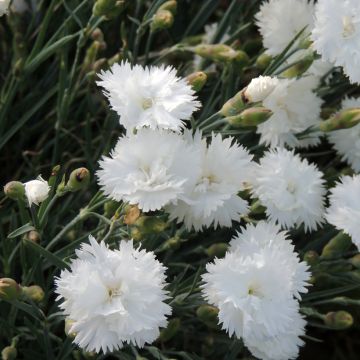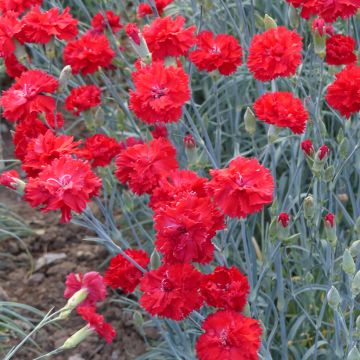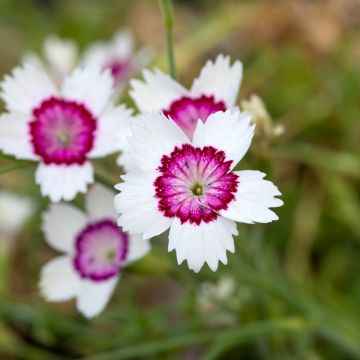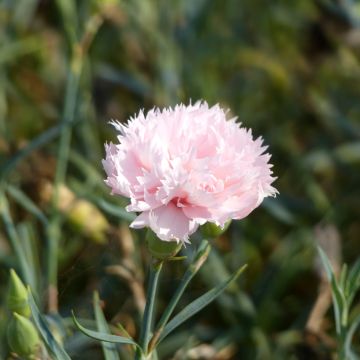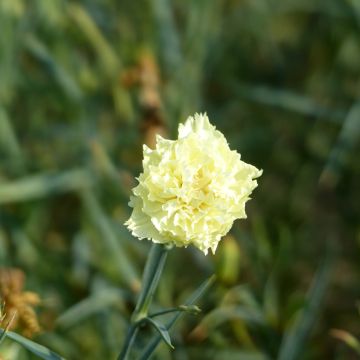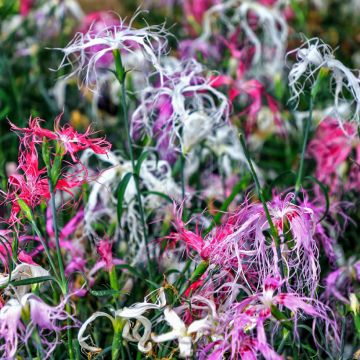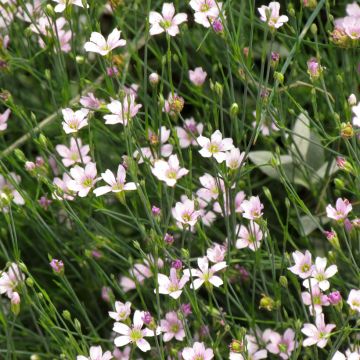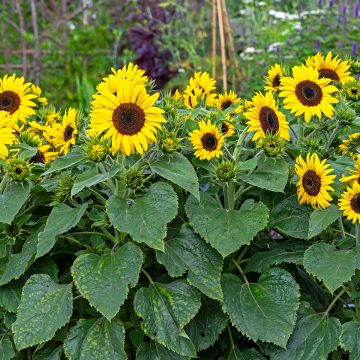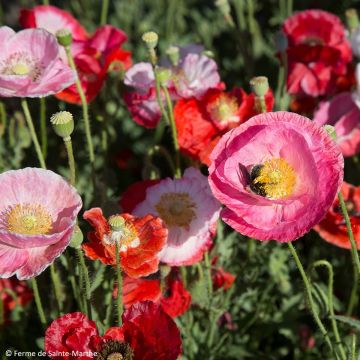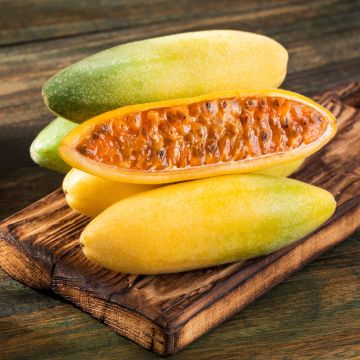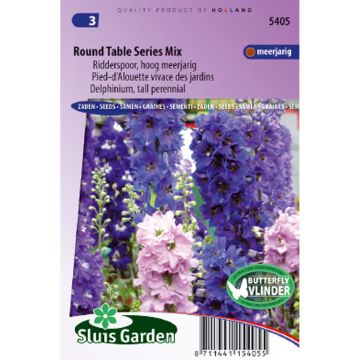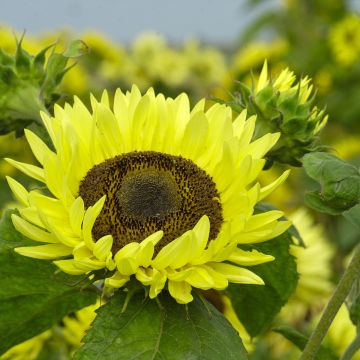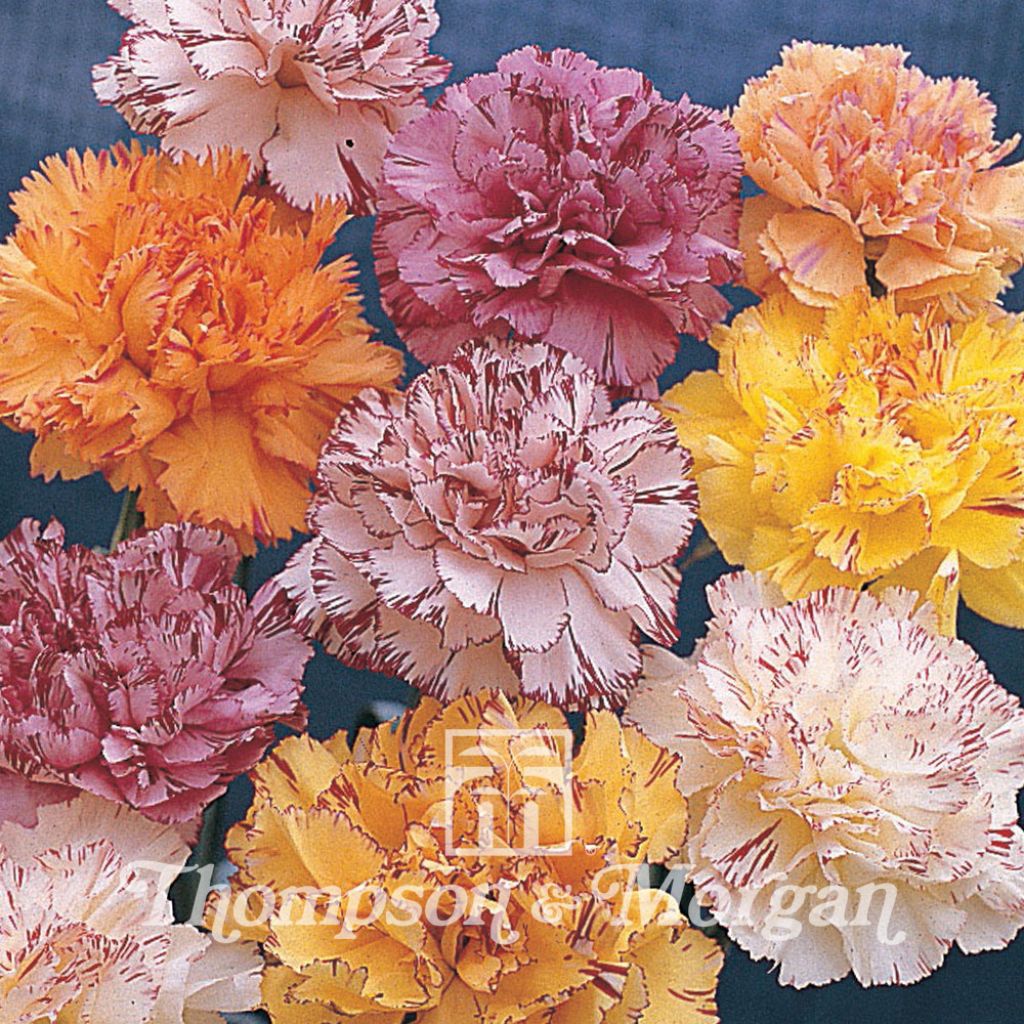

Florists Carnation Stripes & Picotees Seeds - Dianthus caryophyllus
Florists Carnation Stripes & Picotees Seeds - Dianthus caryophyllus
Dianthus caryophyllus Stripes & Picotees
Carnation
I ordered these seeds because I love striated carnations. Unfortunately, just like last year, I am very disappointed with this order. They did not germinate. These seeds are probably of poor quality because I bought some from a competing website and they are growing well...
Lysla C., 10/08/2017
Special offer!
Receive a €20 voucher for any order over €90 (excluding delivery costs, credit notes, and plastic-free options)!
1- Add your favorite plants to your cart.
2- Once you have reached €90, confirm your order (you can even choose the delivery date!).
3- As soon as your order is shipped, you will receive an email containing your voucher code, valid for 3 months (90 days).
Your voucher is unique and can only be used once, for any order with a minimum value of €20, excluding delivery costs.
Can be combined with other current offers, non-divisible and non-refundable.
Why not try an alternative variety in stock?
View all →This plant carries a 6 months recovery warranty
More information
We guarantee the quality of our plants for a full growing cycle, and will replace at our expense any plant that fails to recover under normal climatic and planting conditions.
Would this plant suit my garden?
Set up your Plantfit profile →
Description
'Stripes & Picotees' is a stunning collection that features masses of fully double blooms in a variety of pastel shades including cream, rose pink, pale yellow, apricot and orange. The fringed petals are delicately outlined or striped in contrasting colours. Florists carnations are hardy, short-lived perennials, often treated as annuals or biennials. Delightfully floriferous and fragrant, they form pretty bluish-green leaves and are especially popular for cutting. The plants thrive in full sun in fertile, well-drained soils and are tolerant of drought and limestone.
Dianthus caryophyllus or Florists Carnation is a herbaceous, woody-based perennial that belongs to the Caryophyllaceae family. It is native to the Mediterranean region and is famous for its unmistakable sweet and spicy clove-like fragrance. Although fairly short-lived, these fast-growing plants are able to flower 16 to 18 weeks after sowing. 'Stripes & Picotees' reaches a mature height of 45-60 cm for a spread of 30 cm, forming rather loose clumps. The evergreen bluish to grey-green leaves are very elongated, carried on knotty stems. From July to September, they are topped with bouquets of fully double, fragrant blooms with fringed petals. Each plant produces different coloured pastel flowers with delicate contrasting markings.
Carnations are easy plants to grow, that are very low maintenance once established. Like bellflowers, columbines and Love-in-a-mist, they effortlessly fit into any garden. Grow along passageways such as garden paths or near an entrance to fully enjoy their sweetly scented blooms! In flower beds and borders, grow en masse to create beautiful drifts of colour. They are also suited for container gardens, hanging baskets or pots on the patio or balcony. Make sure to provide the plants with perfect drainage and a little fertilizer. Carnations are popular cut flowers for romantic bouquets or floral arrangements.
Report an error about the product description
Flowering
Foliage
Plant habit
Botanical data
Dianthus
caryophyllus
Stripes & Picotees
Caryophyllaceae
Carnation
Cultivar or hybrid
Other Dianthus seeds
View all →Planting and care
Sow from spring to autumn in good quality, well-drained sowing mix or compost, barely covering the seeds. Place in a propagator or polythene bag and keep in a light room at a temperature of 15-20°C until germination (generally 14 to 21 days). Make sure the soil stays moist but not waterlogged. When the seedlings are strong enough to handle, transplant them into pots and move them to a cooler place. When all risk of frost is over, harden them off gradually for 10-15 days before planting them out in a sunny location, in well-drained soil. Make sure to leave about 20-25 cm between each plant.
Carnations are easy plants to grow in well-drained soil, in a sunny position. They tolerate limestone and poor, stony soils however give best results in fertile, well-drained soil. They are very drought resistant. Carnations favour warm, drier climates as heavy rainfall can cause flower buds to rot. They are also less cold hardy if the ground is wet or waterlogged during the winter months. Dianthus caryophyllus is a short-lived perennial, often treated as a biennial and even an annual, especially in colder climates. It is low maintenance and easy to grow in pots. To be sure to save a cultivar from year to year, it is best to be on the safe side by taking cuttings.
Sowing period
Intended location
-
, onOrder confirmed
Reply from on Promesse de fleurs
Similar products
Haven't found what you were looking for?
Hardiness is the lowest winter temperature a plant can endure without suffering serious damage or even dying. However, hardiness is affected by location (a sheltered area, such as a patio), protection (winter cover) and soil type (hardiness is improved by well-drained soil).

Photo Sharing Terms & Conditions
In order to encourage gardeners to interact and share their experiences, Promesse de fleurs offers various media enabling content to be uploaded onto its Site - in particular via the ‘Photo sharing’ module.
The User agrees to refrain from:
- Posting any content that is illegal, prejudicial, insulting, racist, inciteful to hatred, revisionist, contrary to public decency, that infringes on privacy or on the privacy rights of third parties, in particular the publicity rights of persons and goods, intellectual property rights, or the right to privacy.
- Submitting content on behalf of a third party;
- Impersonate the identity of a third party and/or publish any personal information about a third party;
In general, the User undertakes to refrain from any unethical behaviour.
All Content (in particular text, comments, files, images, photos, videos, creative works, etc.), which may be subject to property or intellectual property rights, image or other private rights, shall remain the property of the User, subject to the limited rights granted by the terms of the licence granted by Promesse de fleurs as stated below. Users are at liberty to publish or not to publish such Content on the Site, notably via the ‘Photo Sharing’ facility, and accept that this Content shall be made public and freely accessible, notably on the Internet.
Users further acknowledge, undertake to have ,and guarantee that they hold all necessary rights and permissions to publish such material on the Site, in particular with regard to the legislation in force pertaining to any privacy, property, intellectual property, image, or contractual rights, or rights of any other nature. By publishing such Content on the Site, Users acknowledge accepting full liability as publishers of the Content within the meaning of the law, and grant Promesse de fleurs, free of charge, an inclusive, worldwide licence for the said Content for the entire duration of its publication, including all reproduction, representation, up/downloading, displaying, performing, transmission, and storage rights.
Users also grant permission for their name to be linked to the Content and accept that this link may not always be made available.
By engaging in posting material, Users consent to their Content becoming automatically accessible on the Internet, in particular on other sites and/or blogs and/or web pages of the Promesse de fleurs site, including in particular social pages and the Promesse de fleurs catalogue.
Users may secure the removal of entrusted content free of charge by issuing a simple request via our contact form.
The flowering period indicated on our website applies to countries and regions located in USDA zone 8 (France, the United Kingdom, Ireland, the Netherlands, etc.)
It will vary according to where you live:
- In zones 9 to 10 (Italy, Spain, Greece, etc.), flowering will occur about 2 to 4 weeks earlier.
- In zones 6 to 7 (Germany, Poland, Slovenia, and lower mountainous regions), flowering will be delayed by 2 to 3 weeks.
- In zone 5 (Central Europe, Scandinavia), blooming will be delayed by 3 to 5 weeks.
In temperate climates, pruning of spring-flowering shrubs (forsythia, spireas, etc.) should be done just after flowering.
Pruning of summer-flowering shrubs (Indian Lilac, Perovskia, etc.) can be done in winter or spring.
In cold regions as well as with frost-sensitive plants, avoid pruning too early when severe frosts may still occur.
The planting period indicated on our website applies to countries and regions located in USDA zone 8 (France, United Kingdom, Ireland, Netherlands).
It will vary according to where you live:
- In Mediterranean zones (Marseille, Madrid, Milan, etc.), autumn and winter are the best planting periods.
- In continental zones (Strasbourg, Munich, Vienna, etc.), delay planting by 2 to 3 weeks in spring and bring it forward by 2 to 4 weeks in autumn.
- In mountainous regions (the Alps, Pyrenees, Carpathians, etc.), it is best to plant in late spring (May-June) or late summer (August-September).
The harvesting period indicated on our website applies to countries and regions in USDA zone 8 (France, England, Ireland, the Netherlands).
In colder areas (Scandinavia, Poland, Austria...) fruit and vegetable harvests are likely to be delayed by 3-4 weeks.
In warmer areas (Italy, Spain, Greece, etc.), harvesting will probably take place earlier, depending on weather conditions.
The sowing periods indicated on our website apply to countries and regions within USDA Zone 8 (France, UK, Ireland, Netherlands).
In colder areas (Scandinavia, Poland, Austria...), delay any outdoor sowing by 3-4 weeks, or sow under glass.
In warmer climes (Italy, Spain, Greece, etc.), bring outdoor sowing forward by a few weeks.






























